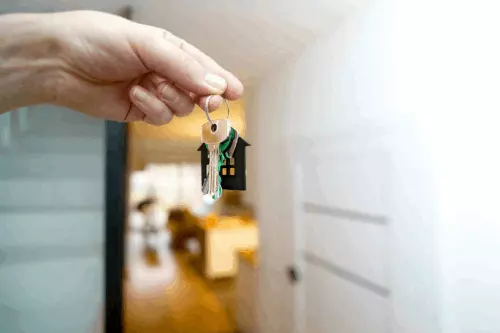The Ultimate First-Time Homebuyer’s Guide

Congratulations on taking the first step toward realizing your dream of owning a home! We understand it can be an intimidating process and that’s why we’re here to help.
This blog will provide you with the step-by-step guide you need to make the transition to homeownership stress-free and successful.
From finding the perfect place to signing the paperwork, and all the steps in between, this blog will provide essential information you need to make this a positive experience. Let’s get started today!
To make sure you have a smooth and successful home-buying journey, follow this guide to help you along the way:
- Prepare your finances
When purchasing your first home, it's important to make sure that your finances are in order. Here is what you need to remember when preparing your finances:
Calculate how much you can afford: Before you start house hunting, take a look at your budget and determine how much you can realistically afford to spend on a home. Consider your monthly income and expenses, including your other debts and monthly payments.
Get pre-approved for a mortgage: Speak to your lender to get pre-approved for a mortgage to determine the size of the loan you can afford. This will give you an idea of the price range of homes you should be looking at.
Build your savings: Save for a down payment and for other costs associated with buying a home such as closing costs, legal fees, and moving costs.
Get your credit in order: Pull your credit report and review it for any errors or discrepancies. Make sure to pay off any outstanding debts and dispute any inaccuracies on your credit report to help improve your credit score.
- Research the market
Researching the housing market when buying a home can be an intimidating process, but it doesn't have to be! Start by identifying your budget and researching current trends in the area you're interested in. Compare prices of similar properties in the area and look into the local economy. Consider the current and past performance of the local housing market to get an idea of what type of investment you are making. Finally, don't forget to look into the area's crime rate, schools, and any other important factors that could influence your decision. With these pieces of information, you'll be able to make an informed decision on your home purchase.
- Find a real estate agent
A real estate agent plays a key role in the home-buying process. They can provide invaluable advice about the local market, help negotiate a fair price for the home, and guide you through the various steps needed to complete the transaction. They also have access to listings that may not be available to the public, so they can help you find the perfect home for your needs. Additionally, they can provide insight into different neighborhoods and provide information about local schools, shopping, and transportation. With their knowledge and experience, real estate agents can be valuable assets when it comes to buying a home.
- Make an offer
If you are interested in making an offer on a home, it is important to consider the current market conditions and the seller's needs. Start by researching comparable properties in the area, so you can determine a reasonable price. Once you have an idea of what would be a fair offer, you can then go to the seller to present your offer. It is important to be prepared to negotiate, as the seller may counter your offer. When presenting your offer, it is also important to be clear about the terms and conditions, including closing costs, contingencies, and other details. Finally, make sure you keep communication open with the seller throughout the process, as this will help ensure a smooth transaction.
- Get a home inspection
Buying a home is one of the biggest investments you will ever make, so it is important to make sure that you protect your investment. A home inspection is an important step in the home-buying process that can help to identify any potential issues with the home. A home inspector can look for things like structural problems, electrical issues, plumbing issues, and other potential issues that may not be apparent to the eye. Having a home inspection can help you understand the condition of the home and make an informed decision about whether it is the right choice for you. It can also save you money and peace of mind in the long run by helping you avoid making costly repairs down the road.
- Close the deal
When you close a deal in home buying, you are officially signing the documents that finalize the purchase of the home. This includes signing a deed, which transfers the title of the home from the seller to the buyer and signing a closing statement, which outlines the financial details of the transaction. After the documents are signed and all the funds have been exchanged, the deal is officially closed and the buyer is the new owner of the home.
- Move-in
Moving in can be a stressful and busy time. This guide will help you get settled in quickly and smoothly.
a. Start by taking measurements of the space. This will help you plan how to arrange furniture and determine what size items you need to buy.
b. Take the time to unpack and organize your belongings right away. This will make it easier to find everything you need and save you time in the long run.
c. Make sure all the utilities and services are up and running. Check for internet access, cable, water, and electricity.
d. Clean the house from top to bottom. This will help you get settled into a comfortable and clean space.
e. Change the locks if needed. This is an important security step to make sure only you and your family have access to the home.
f. Explore the area and get to know your neighbors. This will make you feel more comfortable in your new home.
By following these steps, you can be sure that you are well-prepared for the home-buying process and can make an informed and confident decision. Good luck!
Recent Posts










GET MORE INFORMATION

